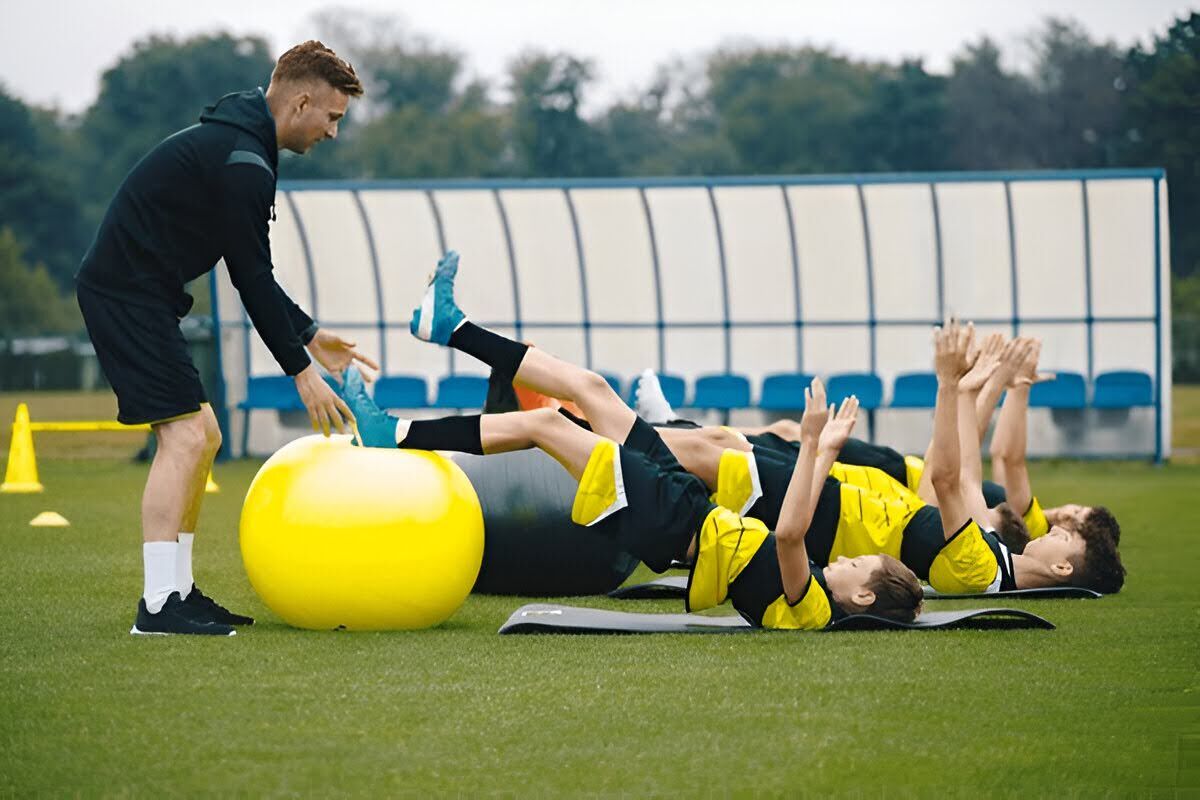Sports are much more than physical activity they’re a powerful tool for building essential life skills. For youth athletes, every practice, game, and challenge presents an opportunity to grow mentally, emotionally, and socially. From teamwork to leadership, sports can shape character in ways that last a lifetime.
In this blog, we’ll explore how young athletes can actively support their own life skill development through sports, with practical tips, self-reflection strategies, and guidance from the field.
Why Life Skills Matter in Youth Sports
Life skills are the abilities that help individuals navigate challenges and build positive relationships both in and out of sports. For young athletes, these skills go far beyond performance; they form the foundation for future success in academics, careers, and personal life.
Some of the most common life skills developed through sports include:
-
Teamwork and collaboration
-
Leadership and communication
-
Discipline and time management
-
Goal-setting and resilience
-
Emotional control and confidence
Sports act as a real-world classroom for these skills. A missed goal, a tough loss, or a successful comeback, each experience builds mental strength and teaches valuable lessons.

How Sports Build Leadership Skills in Young Athletes
Leadership isn’t just about being the captain of the team it’s about taking responsibility, encouraging teammates, and setting an example through attitude and effort.
Here’s how young athletes can foster leadership skills development:
-
Lead by example – Always give your best effort, no matter the outcome.
-
Communicate effectively – Support teammates, share ideas, and listen actively.
-
Stay positive under pressure – Leadership shines most in challenging moments.
-
Set personal and team goals – Guide the group toward shared success.
Explore more about how Strength and Conditioning help shape discipline and determination, two key traits of strong leaders.
Building Self-Awareness and Responsibility
Self-awareness is the foundation of personal growth. In sports, young athletes constantly receive feedback from coaches, teammates, and results. Learning to process that feedback constructively helps build responsibility and maturity.
To support their own growth, athletes can:
-
Reflect on their performance after each practice or game.
-
Recognize both strengths and areas for improvement.
-
Take ownership of their actions on and off the field.
This habit not only enhances athletic development but also improves academic focus and emotional intelligence.
How to Support Your Own Skill Development Through Sport
Supporting personal development as an athlete means being proactive, not passive. Here’s how youth athletes can take charge of their own growth:
1. Set Clear Goals
Whether it’s improving speed, consistency, or leadership, setting goals gives direction and motivation. Break large goals into small, achievable milestones.
2. Seek Feedback Regularly
Constructive feedback from coaches or mentors helps identify blind spots. Instead of fearing criticism, use it as a tool for improvement.
3. Focus on Strength and Conditioning
Physical readiness supports mental confidence. Learn more about how Strength and Conditioning in Youth Sports Development enhances both athletic and personal growth.
4. Embrace Challenges
Every challenge builds resilience. Losing a match or struggling with a new skill teaches perseverance, one of the most important life lessons sports can offer.
5. Stay Consistent
Success doesn’t come overnight. Consistency in practice, mindset, and discipline leads to lasting progress.
The Role of Coaches and Parents in Life Skill Development
While self-awareness is essential, coaches and parents play a big role in guiding athletes toward meaningful skill development. Coaches can model positive behaviors, encourage reflection, and celebrate progress, while parents provide emotional support and perspective.
If you’re a parent, check out our blog on How Parents Can Support Young Athletes in Developing to learn ways you can nurture both confidence and independence in your child.
How Youth Sports Training Encourages Growth
Participating in structured programs like Youth Sports Training helps athletes develop physical and mental resilience. Through planned sessions that focus on agility, teamwork, and self-discipline, young athletes learn to balance competition with cooperation.
These sessions also promote goal-setting and accountability, critical skills that translate directly into school, relationships, and future careers.
Why Choose The Athletes Guild
Choosing the right training environment matters just as much as the sport itself. At The Athletes Guild, our programs are designed to help youth athletes develop not just physical ability but also mindset, leadership, and confidence.
Our coaching philosophy focuses on:
-
Creating a supportive and inclusive community
-
Teaching accountability and sportsmanship
-
Encouraging self-leadership through consistent practice
Every session aims to empower young athletes to become well-rounded individuals, on and off the field.
FAQ: Life Skill Development Through Sport
1: What life skills can youth athletes gain from sports?
Youth sports teach teamwork, leadership, discipline, and confidence, skills that help athletes succeed beyond the game.
2: How can young athletes build leadership skills?
By setting examples, communicating clearly, staying positive, and taking initiative within their team.
3: Can sports improve academic and social skills?
Yes. The same focus, discipline, and cooperation required in sports often improve classroom performance and social relationships.
4: Why is self-reflection important for athletes?
Self-reflection helps athletes identify growth areas, accept feedback, and take responsibility for their progress.
Final Thoughts
Sports give young athletes the unique opportunity to learn lessons that shape their entire lives. By setting goals, staying disciplined, and embracing challenges, they can build not just athletic ability but also leadership, confidence, and character.
At The Athletes Guild, we’re committed to helping youth athletes unlock their full potential, physically, mentally, and emotionally.
Call The Athletes Guild today or visit our programs page to learn how we can support your athlete’s journey toward personal growth and skill development.
